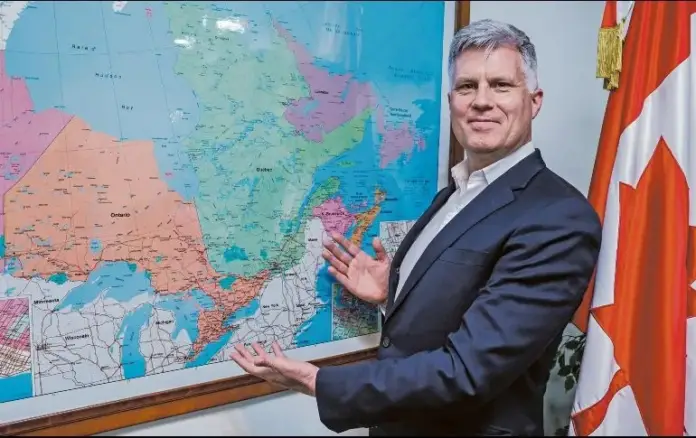There are many things that unite Canada and Jalisco. Things that go beyond the solid trade relationship, transnational treaties and political agreements, economic aspirations, and shared concerns. We are united by the stories, roots, and memories of the nearly 10,000 Canadians—according to embassy data—who, by choice or destiny, live permanently in our state.
We are united by the dreams and struggles of the people of Jalisco who, likewise, have made their lives in Canada. What unites us, then, is not only economic and commercial; it is sustained by deeper ties, as are culture and the arts. Proof of this is Canada’s presence as guest of honor at the May Cultural Festival (FCM) in Jalisco, an event that, from the 8th to the 30th of this month, brings the best of both nations to Guadalajara, as an example of all the bridges we are capable of building, achieving, and sustaining through the common bond of art.
Canada’s ambassador to Mexico, Cameron MacKay, spoke about his country’s participation in the festival and how Canada brought the best of its repertoire to an event of this importance. He also spoke about why Jalisco plays a significant role, both culturally and in relations between the two countries, and at the national level.
“Jalisco is the heart of Mexico,” said Ambassador Cameron MacKay, who attended the opening of the FCM on May 8.
“It’s the food, the people, the art, the architecture. We have very good relations; there are many Canadians living here. Jalisco, for us, is a very important state in Mexico. Our participation in the May Cultural Festival highlights Canada’s deep ties with Jalisco; it’s a bridge, and we’re proud to share the quality and diversity of our culture. Culture is always an example of what people desire. Almost all of Canada’s provinces will be represented at the Festival, but with a special space for Quebec, and I love seeing what can be achieved when Canada, Mexico, and Jalisco collaborate. There’s great potential to continue doing more here. There’s great potential to continue collaborating on cultural issues.”
Although there are currently no cultural exchange programs between Jalisco and Canada, the ambassador commented that there could be no better example of our artistic relationship than the May Cultural Festival, highlighting the wide variety of artists and disciplines present in Jalisco, as an unmissable showcase of what Canada has to offer in the fields of culture and the arts.
From dancers, visual artists, and photographers to large-format installations, musicians, and circus arts experts, Canada brought the best of its repertoire to our shores. The ambassador emphasized: “For now, the greatest example I have of cultural exchange is our participation in this festival.”
“This year, for example, we have Canadian artists in dance, music, immersive theater, and also in contemporary circus, which is something completely new. We are very focused, for the moment, on this festival, which excites us greatly.”
It should be noted that Canada is very aware of the role that Jalisco plays nationally in terms of culture. Not only in terms of the most iconic aspects inevitably associated with Mexico and for which the country is recognized worldwide, but also as a state that consciously fosters, seeks out, and promotes the arts with activities and events as important as the FCM. Against this backdrop, the ambassador recognized this effort, positioning Jalisco as the cultural heart of the country.
“Obviously, there’s a lot of Mexican culture here,” he asserts. “The mariachis, the tequila, the food, the people. Canadians are amazed when they walk through Downtown; they love it. That’s why we have nearly 10,000 people living here. But there’s much more. The fact that they have such an important festival like this every year, and that they invite a different country every year, that they have a guest of honor every year, is a very important example of the cultural level they have,” the ambassador concluded.

Source: informador




